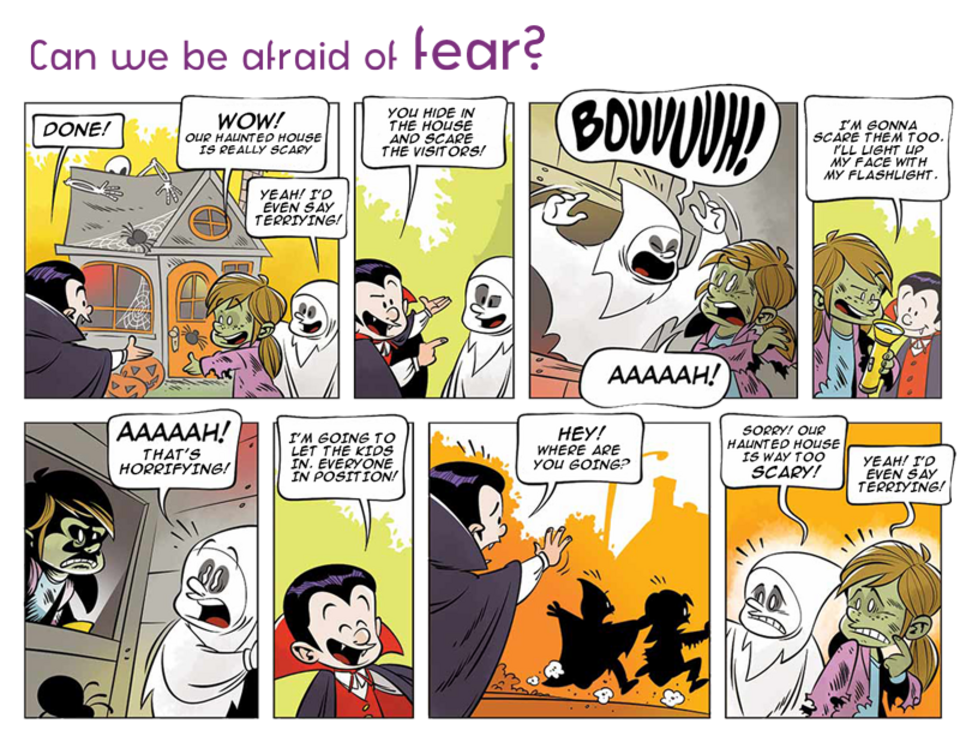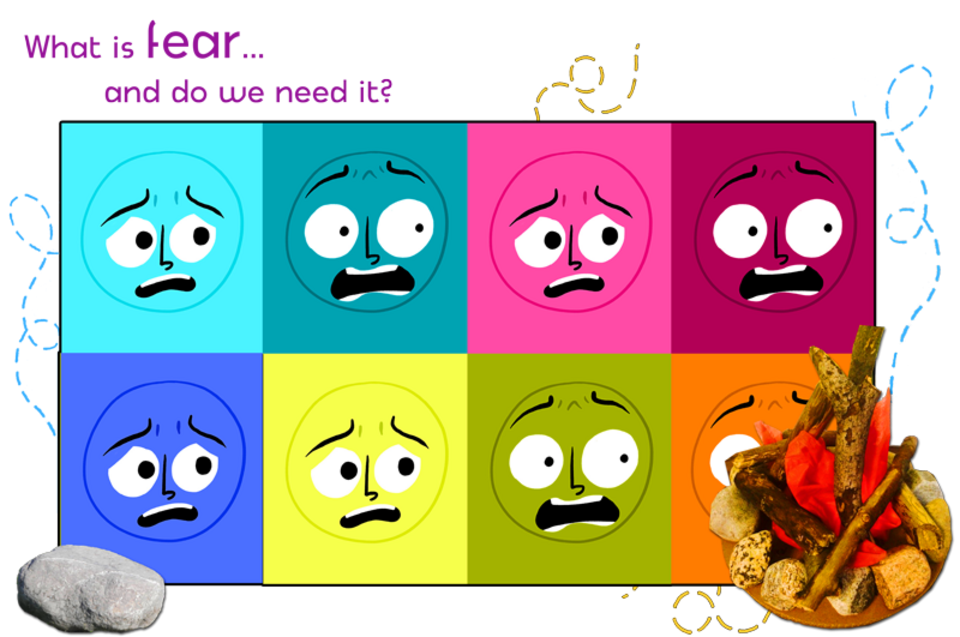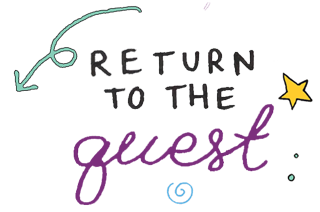
Stories of fear
| Objective: To make your views on the concept of fear shine by telling your stories of fear! |
Duration: 30 to 60 minutes
Material:
- Sheets of paper
- Pencils and eraser
- Coloured pencils and markers
- Scissors, glue, arts and crafts materials
- Recycled materials
- Marshmallows
Instructions:
What better way to end a long day of exploration, discovery and creation than by lighting up a crackling campfire and settling down with your quest companions to roast some marshmallows and tell each other stories of fear?
...
- Set the scene. First, you have to recreate the welcoming and comforting atmosphere of a campfire... without any camp or fire! With a little imagination and some recycled materials, you can create cardboard flames, make logs out of bottles and a starry sky out of newspaper. To set the mood, you can also dim the lights and even play sound effects from a night in the woods—the buzzing of crickets, the hooting of an owl, the crackling of the fire. Add a few blankets to get really cozy, and don't forget the marshmallows!
- Welcome your campers. When everything is ready and the timing is right, invite your family members to come sit around the fire. Explain to them that you will take turns telling a story of fear... but remember: these are not horror stories inspired by urban legends. They should be your own stories of fear based on your own experiences. Each story should be about a moment when you felt really afraid...
- Tell your stories. Start by taking a moment to delve into your memories. Try to remember all the details of the event—your thoughts and feelings—in order to share your experience as accurately as possible. When someone is ready to tell their story, they can begin. As they share their story, listen carefully without asking questions. Once their story is finished, move on to the next person, and so on, until everyone has told their story of fear.
- Think about your stories. Together, identify the similarities and differences between your stories. What caused the fear for each person? What reactions did it provoke? If it helps, you can write down your ideas on a piece of paper. Based on your experiences and your reflections, try to answer these questions: What is fear? Ask yourself if there are different categories of fear and whether all fears are good... or whether some are bad. How can you distinguish between them? Do we need fear... or should we be fearless? Why?
...
Bonus: Some people love haunted houses, horror movies or roller coasters... It's like they love being afraid! Conversely, others shudder at the thought of participating in any of these activities and can’t understand how fear can be fun... Should we like fear? With your family, try to answer these questions: Can scary things be fun? Or can fun things become scary? Why or why not? |

This comic strip is reproduced with permission from the philosophy columns of our community partner Les Débrouillards magazine. It was produced in collaboration with our team at the Institute of Philosophy, Citizenship and Youth.

| Tricks for tots: What's your biggest fear? In your opinion, do you have good reasons to be afraid of this thing that terrifies you? What causes your fear? Have you experienced it before... or is it something that you've never experienced? Ask members of your family to share their greatest fear with you. Can even the most courageous grown-ups be afraid? Why or why not? |
| Tips for teens: If you and your family aren’t afraid of big questions, here are some more avenues of inquiry in which to venture. One might say that fear can protect us from great dangers. But can we also be afraid of things that aren't dangerous? Does fear prevent us from taking risks? Think about a time when you didn't do something because you were afraid. Do you think you lost an opportunity? On the other hand, you can also be afraid of missing out on something—like a party with your friends—so you take part even if you don't really feel like it. Are fears a part of us... or do they prevent us from being ourselves? |
Share your creative reflections by sending them via email.
Include photos of your projects and notes of your thoughts, as well as your first name and your age!


